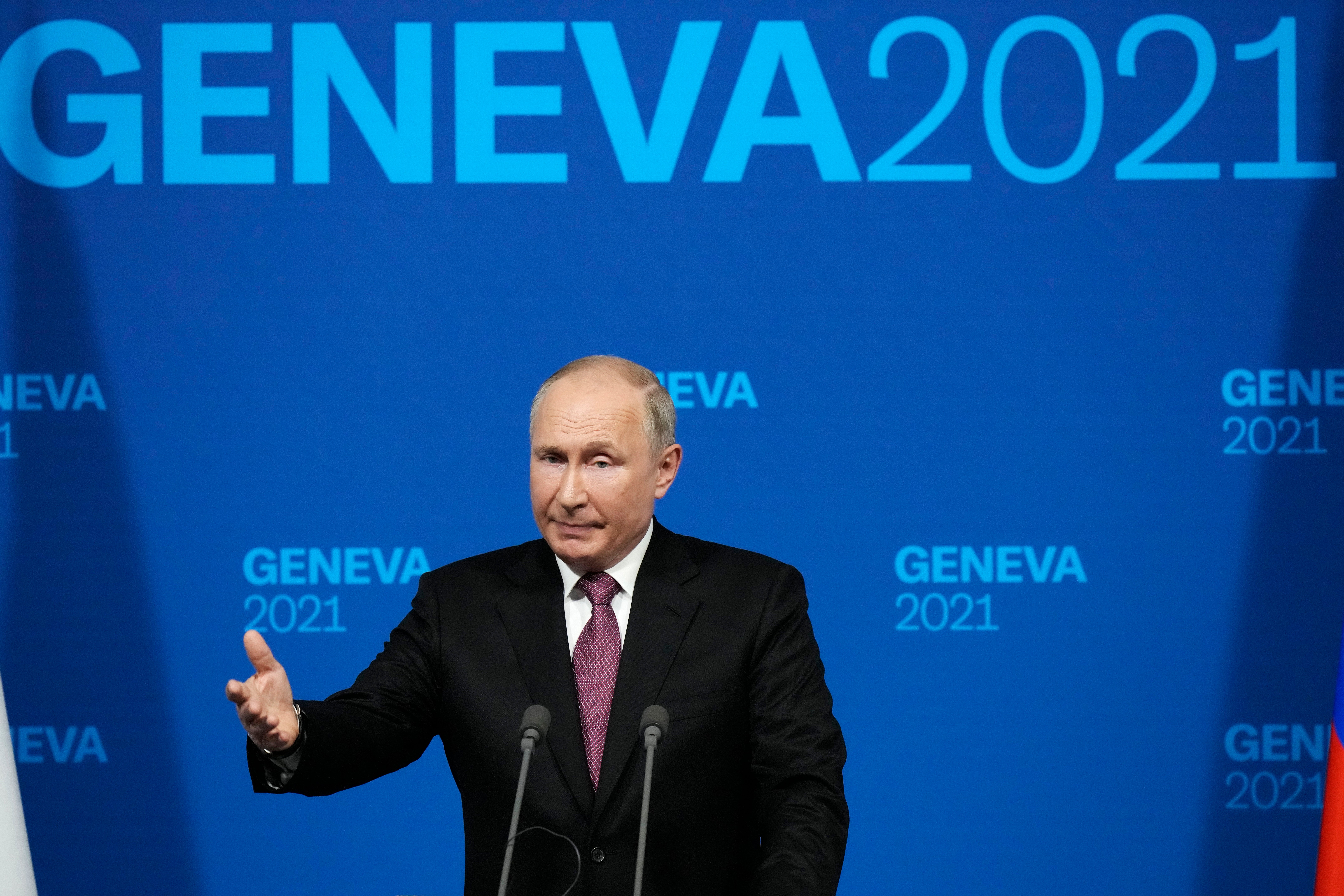AP FACT CHECK: Putin offers baseless claim on cyberattacks
Russian President Vladimir Putin is denying that his country is a leading source of cyberattacks in the world

Russian President Vladimir Putin contradicted the evidence Wednesday when he asserted Russians are not a leading source of cyberattacks on the United States and other countries. They are.
A look at his claim in the news conference that followed his summit with President Joe Biden
PUTIN: “From American sources, it follows that most of the cyberattacks in the world are carried out from the cyber realm of the United States. Second place is Canada. Then two Latin American countries. Afterward comes Great Britain. Russia is not on the list of countries from where — from the cyber space of which — most of the various cyberattacks are carried out.”
THE FACTS: This portrayal defies the record. Putin did not identify the source of the list he cited. But Russian-based digital malfeasance is well established by U.S. officials and security researchers alike.
While the U.S., Canada and Britain all engage in cyberespionage, the most damaging cyberattacks on record have come either from state-backed Russian hackers or Russian-speaking ransomware criminals who operate with impunity in Russia and allied nations.
In one such attack, the NotPetya virus did more than $10 billion in economic damage in 2017, hitting companies including shipping giant Maersk the pharmaceutical company Merck and food company Mondolez.
The cyberattacks that have recently done the most damage are from ransomware sowed and activated by Russian-speaking criminal gangs that enjoy safe harbor in Russia and allied nations and whose members have sometimes colluded with Russian security services.
The global ransomware plague that has caused tens of billions of dollars of damage in the past 18 months — hitting a company, hospital, school or other target about every eight minutes — was a major issue for Biden at the summit.
As well, Russian intelligence operatives famously interfered in the 2016 U.S. presidential election by hacking Democratic email accounts and orchestrating the release of those communications to boost the campaign of Republican Donald Trump and harm his Democratic opponent Hillary Clinton
Russian military hackers also attacked and briefly shut down portions of Ukraine’s power grid in the winters of 2015 and 2016.
Altogether, the cybersecurity firm Recorded Future estimates there were 65,000 successful ransomware attacks globally in 2020 from all sources.
The May attack on the Colonial Pipeline, which prompted it to cut off fuel supplies to the U.S. East Coast for five days, was the most spectacular in its impact on crucial infrastructure and came after the Biden administration called ransomware a national security threat exceeding cyberespionage
___
Associated Press writers Eric Tucker and David Klepper contributed to this report.
___
Find AP Fact Checks at http://apnews.com/APFactCheck
Follow @APFactCheck on Twitter: https://twitter.com/APFactCheck
Bookmark popover
Removed from bookmarks